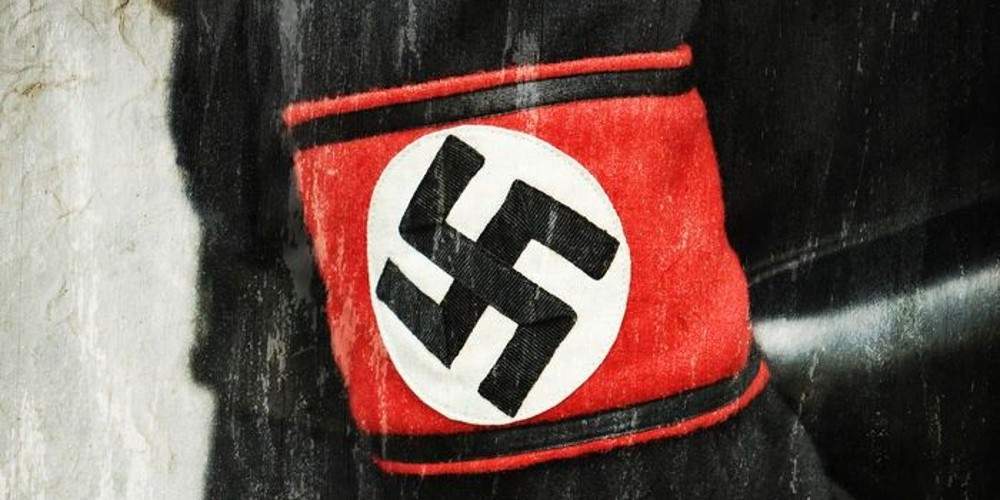When the average person thinks of the Nazis, what often comes to mind is World War II, the Holocaust, and rousing speeches of hate. However, the National Socialists also had economic and political policies, policies many just assume were either free market or New Deal–style public works projects like the Autobahn. But Nazi policy was not so cut-and-dried.
The Nazis were socialists, and it showed in many of the policies they implemented after coming to power in 1933. First, like the Soviets, the Nazis initiated a war on private property. Not surprisingly, property rights were severely curbed by National Socialism in the name of public welfare.
How did the National Socialists combat private property in Germany? The first step came shortly after the Nazis took control, when they abolished private property. Article 153 of the Weimar constitution guaranteed private property, with expropriation only to occur within the due process of the law, but this article was nullified by a decree on February 28, 1933.
With this, the new National Socialist government had complete control of private property in Germany. While they did not take complete control of the lands like the Bolsheviks did in Russia in 1917, the Nazis issued quotas for industries and farms, and later they reorganized all industry into corporations run by members of the Nazi Party.
✔️ Boost your immune system with Nutraceutical by Dr. Zev Zelenko
✔️ Beat supply chain issues and future pharmaceutical tyranny with 5 Antibiotics Delivered to Your Home
✔️ Be ready to help yourself and your family with the World’s Best Med Kit
The War on Business
Peter Temin wrote about this in Soviet and Nazi Economic Planning, stating:
Both governments reorganized industry into larger units, ostensibly to increase state control over economic activity. The Nazis reorganized industry into 13 administrative groups with a larger number of subgroups to create a private hierarchy for state control. The state could therefore direct a firm’s activities without acquiring direct ownership of enterprises. The pre-existing tendency to form cartels was encouraged to eliminate competition that would destabilize prices.
The Nazis, ironically, called this reorganization “privatization,” although the owners of these corporations were either removed from board positions and replaced by Nazi Party members or sold out and became Nazi Party members. They included IG Farben and the Junkers airplane factory. IG Farben was a chemical company founded in 1925 by Carl Bosch and Carl Duisberg, who were both Jewish, and had a capitalization of around a billion marks by 1926. By 1938, all of the company’s Jewish workers had been purged and the supervisory board replaced by Nazis (see Joseph Borkin’s book The Crime and Punishment of I.G. Farben).
IG Farben was a clear example of the reorganization of industry the Nazis undertook for their benefit. Sybille Steinbacher, a professor of Holocaust studies, wrote about the public-private partnership in her book Auschwitz, stating:
Otto Ambros and IG Farben director Fritz ter Meer held a board meeting in Berlin with Carl Krauch who was not only a member of the board of directors of IG Farben, but also a member of the circle of industrialists around Reichsfurhrer-SS known as Himmler’s “Circle of Friends.”
After the Nazis took power, this kind of cooperation was common. Private businesses became merely public entities, and industrialists who resisted the Nazi commissars and their policies were removed from their positions and their businesses seized.
Junkers airplane factory did not fare much better, according to Temin, who wrote:
Prof. Junkers of the Junkers airplane factory refused to follow the government’s bidding in 1934. The Nazis thereupon took over the plant, compensating Junkers for his loss. This was the context in which other contracts were negotiated.
This Nazi war on business left industrialists and other businessmen worried that they would have their livelihoods stolen from them, as Günter Reimann explains in The Vampire Economy.
Reimann quotes a letter from a German businessman to an American businessman:
The difference between this and the Russian system is much less than you think, despite the fact that officially we are still independent businessmen.
The letter continues:
Some businessmen have even started studying Marxist theories, so that they will have a better understanding of the present economic system.
This German businessman also complained of “arbitrary government decisions concerning quantity, quality, and prices of foreign raw materials.” But businessmen were not the only members of the private sector who faced mass amounts of bureaucracy and control. The farmers faced it as well.
The War on Agriculture
When the Nazis came to power in 1933, a major interest for them was Lebensbraum (living space) for the “pure” German citizen. Professor Adam Tooze talks about the “hereditary farm” in his book Wages of Destruction:
For the purpose of protecting the peasantry as the “Blood Source of the German People,” the law proposed to create a new category of farm, the Erbhof (hereditary farm), protected against all debt insulated from market forces.
These farms were to be passed down from generation to generation to keep the soil “pure,” and Reich officials even thought that “Erbhof farmers should assume collective responsibility for each other’s debts.” This policy was introduced and supported by the Reich central bank and Reichsnährstand (RNS, State Food Society) officials.
Farming price subsidies were also common in the Nazi Reich even before World War II broke out. The RNS was created to fix prices and create production controls in agriculture. In his book Hitler’s Beneficiaries, German historian Götz Aly describes the measures the German government took in the farming sector.
Götz states, “The prices producers were paid for milk and potatoes were raised by 25 to 35 percent in the course of the war.” These subsidies would cause shortages as early as August 1939, when meat and eggs rationing was imposed to keep the industry focused on grain production.
Life in Prewar Germany
In high school history textbooks, very few pages are dedicated to prewar Germany (1933–39). However, two details are always covered: the Night of Broken Glass (Kristallnacht), which saw thousands of Jewish businesses vandalized and destroyed, and the Autobahn, a massive public works program that improved many lives and made travel easy.
Because of this, people may reach the conclusion that prewar life was bad for the Jews, but beneficial for non-Jewish citizens. It is true that Jews suffered immensely, not only socially but also economically. At the start of 1933, there were an estimated hundred thousand Jewish businesses; by 1938, only 39,552 remained. In the same year, a capital levy was put on Jews; they needed to register all their assets with the local tax office, which placed a 20 percent and later a 25 percent capital levy on them.
But for ordinary non-Jewish citizens, life was also hard. Private sale negotiations were subject to official rules, these rules being set selling prices for whatever good someone had. If a dealer wanted to increase his prices, he must get a special permit from a price commissar, who needed a detailed statement of necessity and other data such as production and distribution costs.
R.J. Overy’s War and Economy in the Third Reich and Richard Evans’s Third Reich in Power talks about the shortages that came out of the industries at these times. In 1936, Germany steel producers were only producing 26 percent of Germany’s domestic output requirement. The German government in 1937 would encourage citizens to hand in their scrap metal, and in the same year, authorities including the Hitler Youth would search people’s homes for old metal keys.
Metal was strictly rationed, and fines were handed out to building contractors who installed metal central heating pipes. Iron lamp posts and railings were replaced with wooden ones, but this was halted when there was a wood shortage, which also led to a paper shortage.
All of this happened in 1937, two years before the war. Building projects had to cut back on wood and people were encouraged to burn peat instead of wood. Even coal was rationed. All industries under price controls were in the same situation, such as agriculture, where egg and dairy shortages led to the distribution of ration coupons.
Conclusion
The Nazi government took control of the economy, which is what one expects from socialism.
Unfortunately, the US economy today has similarities to the Nazi economy, from vast subsidies to price controls, and “stakeholder” advocates making even wilder demands. History tells us where these policies lead: the road to serfdom.
About the Author
John Kennedy is a recent graduate of Hartford Magnet Trinity College Academy. Economists such as Murray Rothbard, Hans-Hermann Hoppe, and Ludwig von Mises have captured his interest in Austrian economics and inspired him to start writing.
Article cross-posted from Mises.
They’re Trying to Shut Us Down
Over the last several months, I’ve lost count of how many times the powers-that-be have tried to shut us down. They’ve sent hackers at us, forcing us to take extreme measures on web security. They sent attorneys after us, but thankfully we’re not easily intimidated by baseless accusations or threats. They’ve even gone so far as to make physical threats. Those can actually be a bit worrisome but Remington has me covered.
For us to continue to deliver the truth that Americans need to read and hear, we ask you, our amazing audience, for financial assistance. We have a Giving Fuel page to help us pay the bills. It’s brand new so don’t be discouraged by the lack of donations there. It’s a funny reality that the fewer the donations that have been made, the less likely people are willing to donate to it. One would think this is counterintuitive, but sometimes people are skeptical because they think that perhaps there’s a reason others haven’t been donating. In our situation, we’re just getting started so please don’t be shy if you have the means to help.
Thank you and God bless!
JD Rucker
All ORIGINAL content on this site is © 2021 NOQ Report. All REPUBLISHED content has received direct or implied permission for reproduction.
With that said, our content may be reproduced and distributed as long as it has a link to the original source and the author is credited prominently. We don’t mind you using our content as long as you help out by giving us credit with a prominent link. If you feel like giving us a tip for the content, we will not object!
JD Rucker – EIC
@jdrucker





